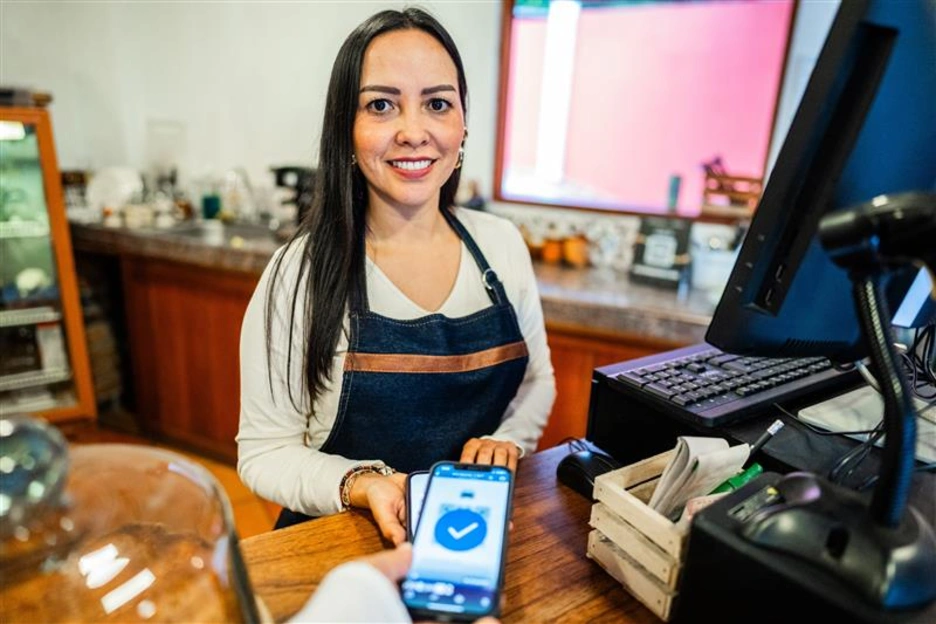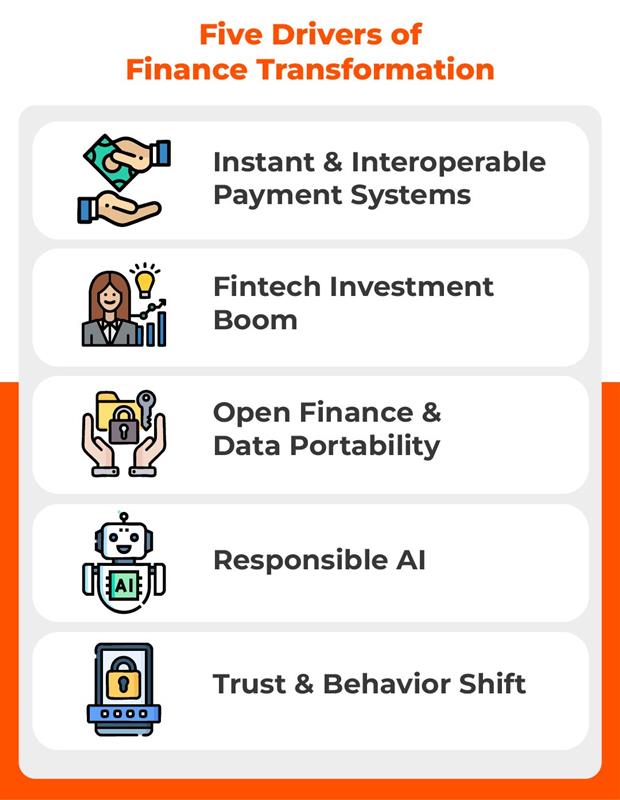Five Drivers Reshaping Finance in Latin America and the Caribbean

Across the region, the share of adults with a financial account has risen from 50% in 2017 to about 70% in 2024, according to the Global Findex 2025. Today, more than half of these account holders access financial services digitally, driven by the rapid digitalization of the sector and the emergence of a dynamic fintech ecosystem. These innovations specifically target low-income populations, delivering basic financial solutions that have long been out of reach for underserved communities.
Building on this momentum, five drivers are currently reshaping finance in Latin America and the Caribbean. These drivers will take center stage at the FinnLAC Forum 2025, held in Miami on November 4–5, where regulators, entrepreneurs, and investors will analyze how to accelerate inclusive digital transformation in the region. Registration is open now.

Instant and Interoperable Payment Systems
New public and private initiatives are enabling real-time low-value transfers through public infrastructure and greater interoperability across bank accounts, wallets, QR codes, and participants, regardless of the buyer’s or merchant’s platform. An increasing number of countries have adopted, or are in the process of adopting, fast retail payment systems and interoperability mandates.
Thanks to this revolution, mobile transfers in Costa Rica have become a daily tool for households and merchants. In Argentina, customers can shop and pay using any interoperable QR code linked directly to their account. These systems are scaling digital payments by making transactions faster, cheaper, and safer.
Fintech Investment Boom
Since 2017, Latin America’s fintech sector has experienced a boom in venture investment, soaring to nearly $14 billion at its peak in 2021. A sharp correction followed in 2022-2023, but 2024 saw a rebound, with investor confidence returning. The first half of the year alone attracted $1.2 billion in fintech deals, about 20% more than the prior year. The rise of homegrown fintech giants underscores the sector’s maturity.
Open Finance and Data Portability
The introduction of standardized and secure digital interfaces for sharing financial data is also reshaping the financial landscape across Latin America and the Caribbean, giving individuals control over their data and enabling access to tailored financial products.
Trust in this ecosystem is reinforced through robust API standards – common rules that let banks and fintechs connect securely – as well as secure data-sharing frameworks, and clear liability rules. Regulatory efforts across the region increasingly focus on empowering users with the confidence that their data is protected and that sharing it is safe. Chile’s 2024 Fintech Law established a national framework for open finance, paving the way for broader adoption. By making financial data portable, open finance lowers the cost of switching and unlocks more inclusive, user-centered financial solutions.
Responsible AI
Artificial intelligence enables traditional financial systems and fintech firms to assess risk at lower costs and provide faster decisions. It could also help millions of people without formal credit histories access financial services, leveraging alternative data to expand credit responsibly.
However, research consistently shows that while alternative data and AI enhance predictive capabilities, they complement – rather than replace – traditional credit history, which remains a foundational element in risk assessment. The IDB’s fAIr LAC initiative is advancing responsible AI in the region, equipping both providers and supervisors with tools to detect fraud and abuse, while ensuring innovation does not compromise consumer protection.
Trust and Behavior Shift
Expanding access to financial services is meaningful when people use digital tools in their everyday lives. Across Latin America and the Caribbean, the shift from cash to digital has accelerated sharply. In 2020, roughly 38% of the value of in-person transactions was conducted in cash; by 2024, that share had fallen to less than 25%.
Yet, concerns about fraud remain a barrier. To build confidence, governments and providers are introducing stronger protections, such as real-time transaction alerts, insurance against scams, and clear refund mechanisms. Public education campaigns on cyber safety are also helping. Together, these measures are changing behaviors, making digital finance not only accessible but trusted – turning accounts into actively used resources and transforming how households and businesses manage money.
Scaling Fintech Potential Together
The IDB Group has played a key role in enabling the fintech ecosystem in the region. By mobilizing private capital, providing technical assistance, and fostering regulatory innovation, the Group has helped create the conditions for more than 3,000 fintech firms to operate across 26 countries. At the same time, incumbent financial sectors – banks, microfinance institutions, and cooperatives – are rapidly digitizing their operations.
Promoting the exchange of ideas and collaborative pilots is crucial to advancing a more accessible and modern financial model in Latin America and the Caribbean. That is our goal at the FinnLAC Forum 2025, which will feature more than 50 speakers across 20 sessions, and 20 booths showcasing fintech solutions– all focused on financial health, sustained innovation, and expanding the financial frontier to reach everyone. Let’s see just how far financial innovation can take us.
LIKE WHAT YOU JUST READ?
Subscribe to our mailing list to stay informed on the latest IDB Invest news, blog posts, upcoming events, and to learn more about specific areas of interest.
Subscribe



